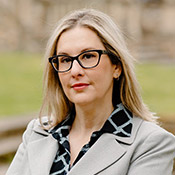ACSI Research Fellow Program
The Research Fellowship program at ACSI offers a unique opportunity for talented researchers to contribute to advancing the field of Christian education while addressing critical global challenges. By fostering collaboration, knowledge exchange, and innovative research, the program aims to make a significant impact on the world stage.
Program Aims:
- Create a vibrant and inclusive international research community.
- Foster collaboration, knowledge exchange, and innovative solutions to address both US and global challenges through research projects in Christian education.
Program Oversight:
- The fellows will collaboratively work with ACSI’s research department and Thought Leadership and the Research Director will oversee the program.
ACSI Fellows Collaborate on Research to Advance Faith-Based Education
ACSI Fellows collaborate with the Thought Leadership team (Research Department) to develop research and Working Papers on important topics in education, spirituality, and culture, focusing on their impact within the realm of Christian education. Their work addresses current trends and challenges, offering valuable insights for advancing faith-based learning.

RiB is a biannual publication by ACSI, aimed at sharing the latest research findings and insights on the Christian school sector. It is available exclusively to ACSI member school and is managed by ACSI Director of Research.

Lynn Swaner Ed.D.
President of Cardus USA – ACSI Senior Research Fellow

Matthew Lee, Ph.D.
Clinical Assistant Professor of Economics at Kennesaw State University - ACSI Senior Research Fellow

Francis Ben, Ph.D.
Associate Professor & Head of Postgraduate Coursework and Research at Tabor College Adelaide Australia – ACSI Global Research Fellow

Alison Heape Johnson
PhD candidate at the University of Arkansas – ACSI Junior Research Fellow
Eligibility:
- Understanding of Christian education.
- Strong academic credentials (e.g., relevant degrees, publications, minimum a Ph.D. candidate in education programs for Junior Fellow and a Ph.D. or Ed.D. for Senior Fellow).
- Demonstrated research excellence.
- Experience in international research collaboration.
- Excellent English communication skills.
- Minimum five years experience of doing research.
Nomination and selection process:
- The selection of the fellows is done through ACSI’s internal nomination.
The Ideal Portrait of a Christian High School Graduate
The significance of this moment in time is undeniable, as it involves looking back over a lifetime so far and anticipating the future. As diplomas are granted, graduates stand on the threshold of a world brimming with endless possibilities. The future beckons with unseen adventures, promising new friendships to be forged, new challenges to be overcome, and new dreams to be pursued.
Graduation ceremonies are a testament to the dedication and hard work put forth by each graduate. Christian schools have embraced this opportunity to nurture and guide the students God has entrusted to their care. The hope and goal are that regardless of the length of time—one year or twelve—they have been laying a strong foundation by helping them grow in knowledge of academics and the Bible and mature in their faith and relationship with Jesus Christ.
An individual's character, work ethic, and academic abilities are not fully developed at the age of 18, and maturity is a lifelong process. However, there are fundamental training strategies that can enhance the likelihood of a child adopting a desired belief system, cultivating effective learning habits, and embodying Christ-like character traits. While parents are the primary influencers in shaping these qualities, schools also play a significant role in their development.
Every graduating senior is a unique creation in the image of God, yet schools aim to instill certain desired outcomes in all of them. During my time as head of school at Prestonwood Christian Academy in Texas, we prayerfully aspired for our graduating seniors to demonstrate the foundational desired outcomes listed below:
1. Reverence for God is the beginning point of wisdom (Proverbs 9:10). Without reverence and recognition of God, then education is essentially secular. Learning to think and discern (Hebrews 5:14) as a mature believer in Christ is undergirded by authentic respect and love for our Lord.
2. An Eternal Perspective is interdependent with reverence. This type of perspective gives us purpose in our work, and it develops a strong work ethic because we know and understand that we are working to please and honor God (Colossians 3:23). The Latin phrase on our school crest, Ad Majorem Dei Gloriam (for God’s greater glory), frames our motives.
3. Humility is then cultivated when one recognizes that our lives are about Him; we are a ‘serving-as-His’ leader. Recognizing that God has bestowed intellect, talents, and gifts upon us takes the focus off us and rightfully places it on our Lord. This compels us to demonstrate the love and attitude of Jesus Christ to all people, characterized by selflessness, servanthood (Philippians 2:2–11), and a lifestyle of obedience to seeking first the Kingdom of God (Matthew 6:33).
4. The process of learning, or scholarship, is conditioned by reverence, eternal perspective, and humility. The Christian liberal arts environment nurtures the mind to become eager to learn, think, and analyze. All knowledge and every academic discipline are appreciated, and not for a ‘grade’ per se, but because of the very process of learning—scholastic excellence becomes a commitment to disciple the mind. Using our mind to not only magnify God but to serve as His ambassador in areas of law, business, medicine, engineering, education, ministry, and any assignment God calls us to is an act of obedience and reverence. The development of a biblical worldview is the fruit of this process.
5. Rigor, high expectations, and accountability complement the entire learning environment as students grow accustomed to striving for excellence. Problem-solving, thinking, critical analysis, and synthesis strengthen the mind and become natural thought processes. The apostle Paul encouraged the Corinthians to strengthen their minds (2 Corinthians 10:5), including all systems of philosophy, opinions, and powers of reason being subject to the Word of God. A culture of rigor serves as a catalyst to pursue excellence in every area of one’s life.
Schools, savor every moment of this celebration as we witness God’s reflection in the eyes of each graduating senior. The memories of high school will forever hold a special place in their hearts. To the graduates: may your futures be as bright as your spirits, and may you always seek to glorify your Heavenly Father on whatever path He leads you!




Leave a comment